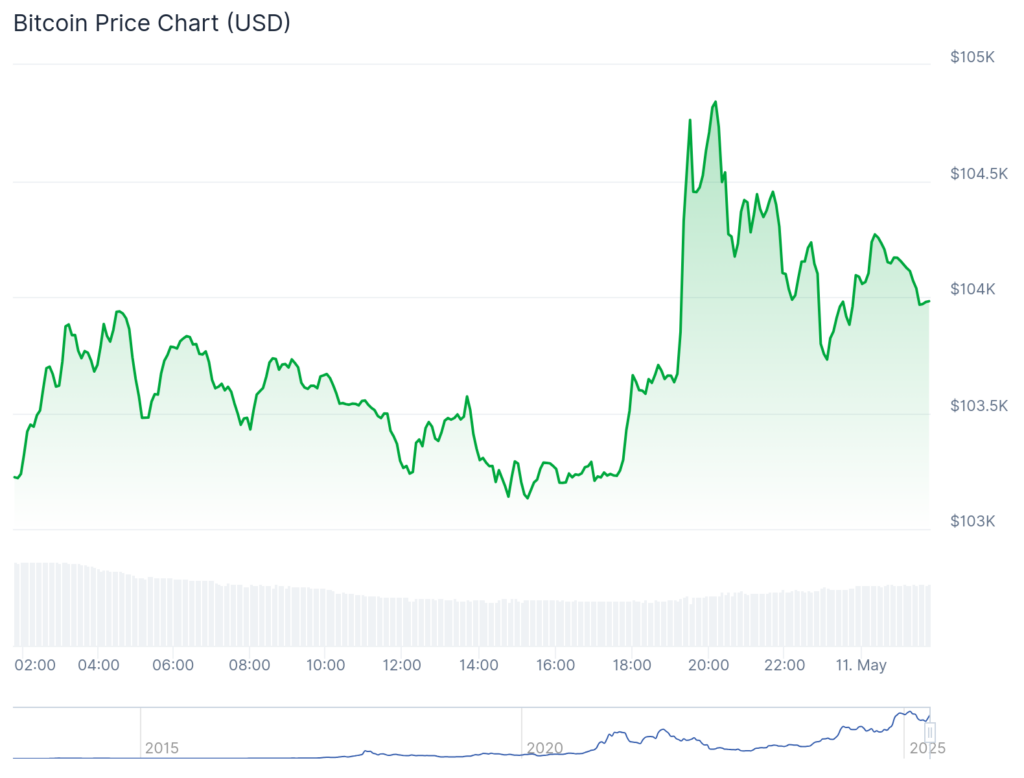Cryptocurrency markets are charging into the week with renewed bullish momentum, fueled by surging institutional interest, growing ETF-driven demand—particularly around Bitcoin—and a wave of favorable trading clarity is driving renewed investor confidence.
Bitcoin (BTC) climbed to a peak of $104,900 on Saturday evening—just about 4% below its all-time high—following President Donald Trump’s announcement of progress in U.S.-China trade talks during a meeting in Switzerland.
“A very good meeting today with China, in Switzerland,” Trump posted on Truth Social, his social media platform. “Many things discussed, much agreed to. A total reset negotiated in a friendly, but constructive, manner.”
Bitcoin rallied on the heels of the news.

By early Sunday morning, the top cryptocurrency by volume hovered around $103,985.
And yet, altcoins managed to grab the spotlight as well. At last check, Ethereum marked one of its strongest daily performances in recent weeks, while meme coins roared back to life. See below.
| CRYPTOCURRENCY | PRICE | 24-HOUR GAINS +/- |
| Bitcoin | $103,985 | +0.7% |
| Ethereum (ETH) | $2,536.25 | +8.7% |
| Solana (SOL) | $176.76 | +3.7% |
| XRP (XRP) | $2.41 | +2.1% |
| Dogecoin (DOGE) | $0.24 | +14.9% |
| Shiba Inu (SHIB) | $0.00001641 | +8.8% |
Weekend highlights
Top gainers
| CRYPTOCURRENCY | PRICE | GAINS +/- |
| HashAI | $0.0006523 | +68.4% |
| Ether.fi | $1.25 | +63.9% |
| Quai Network | $0.1259 | +55.5% |
Further reading
This altcoin rally coincides with a decrease in Bitcoin’s market dominance to 63.89%, per TradingView.
Analysts interpret this as a sign of capital rotation into altcoins, suggesting the onset of an “altcoin season.” The ETH/BTC ratio has rebounded from its lowest levels since 2020, further supporting this trend.
Meanwhile, top U.S. and Chinese economic officials are expected to meet in Geneva for a second round of high-stakes trade talks to ease tensions from Trump’s escalating trade war.
The conflict has already led to steep tariffs—145% on Chinese goods and 125% on U.S. exports—disrupting global supply chains and prompting companies to seek alternatives.
According to the New York Times, economists warn the ongoing dispute could slow global growth, raise inflation, and push the U.S. toward a recession.

